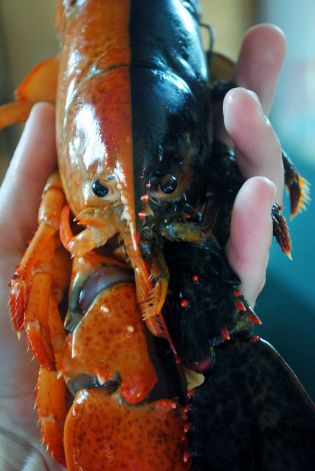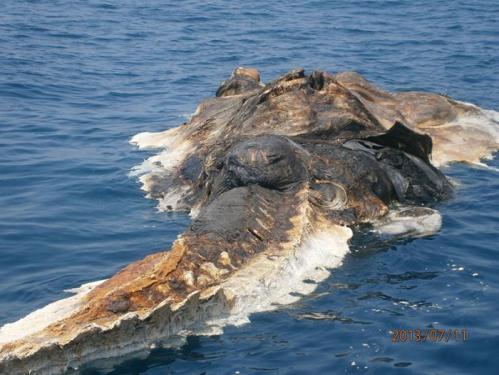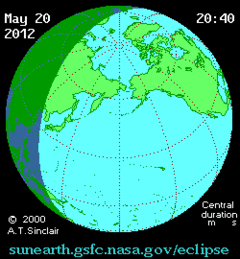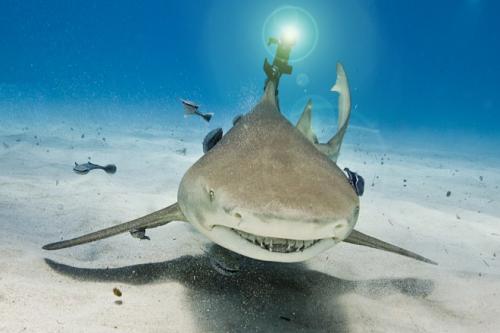Topic: NATURE - on September 23, 2013 at 2:20:00 PM CEST
Dinosaur Feathers Found in Ancient Amber
Fluffy structures trapped in thumbnail-sized bits of ancient amber may represent some of the earliest evolutionary experiments leading to feathers, according to a new study. These filaments of "dinofuzz" are so well preserved that they even provide hints of color, the researchers say.
The oldest bird, Archaeopteryx, lived in what is now Germany about 150 million years ago, and the oldest known feathered dinosaur, Anchiornis huxleyi, lived in northeastern China between 151 million and 161 million years ago.
... Link (0 comments) ... Comment
Topic: NATURE - on August 31, 2013 at 4:19:00 PM CEST
2-tone lobster, orange and brown, shown in Maine
Maine has seen its share of blue lobsters, orange lobsters, albino lobsters and calico lobsters. But one on display at a Portland research facility has all of those turning green with envy.
The lobster at the Gulf of Maine Research Institute is half orange and half brown.
The lobster was caught by lobsterman Jeff Edwards and was donated by Ship to Shore Lobster Co. in Owl's Head.

... Link (0 comments) ... Comment
Topic: NATURE - on August 27, 2013 at 2:53:00 PM CEST
Rome: new fumarole near Fiumicino airport
What appears to be a new fumarole appeared near Rome's International Fiumicino airport Saturday morning. A vent producing small geyser-like fountains of steam, water and mud was suddenly opened in the ground near a road crossing near Fiumicino. Geologists are currently examining the phenomenon.
... Link (0 comments) ... Comment
Topic: NATURE - on July 26, 2013 at 1:21:00 PM CEST
Diese seltsame Kreatur iranische Kriegsschiff in den Persischen Golf gefunden.

... Link (0 comments) ... Comment
Topic: NATURE - on July 11, 2013 at 5:51:00 PM CEST
Dammit Mother Nature: Weird-Ass Living Rocks With Guts
“Period Rock? You’re calling me Period Rock now? Guys, seriously, I might look like a stone, but that doesn’t mean I have the heart of one. Why doesn’t anyone ever just call me Michael?”
Despite appearances, this is not some kind of cruelly bisected alien stone organism or a tomato thunderegg. This is Pyura chilensis, a sea creature that lives on the rocky coast of Chile and Peru. And if (like me, very recently) you’ve never seen one of these before, you’ll probably be interested to know that in Chile, they are fished commercially, and the locals eat them raw or cooked with salad and rice because apparently they’re delicious.
... Link (0 comments) ... Comment
Topic: NATURE - on July 10, 2013 at 5:25:00 PM CEST
Crazy Sky-High Waterspout Captured on Camera in Florida
There are those natural phenomena that we know are coming, like comets, the Supermoon and this year's forthcoming Manhattanhenge, causing shutterbugs around the world to prepare their cameras. Then there's the stuff we have no idea is coming, like earthquakes, tsunamis and tornadoes. But the prevalence of cell phone cameras mean we're now capturing images from the latter category too. Yesterday a series of photos out of Oldsmar, Florida, went viral as a handful of residents were able to capture a waterspout—a sort of oceangoing tornado—that formed around sunset on Monday.

... Link (0 comments) ... Comment
Topic: NATURE - on June 10, 2013 at 1:46:00 PM CEST
Natural Lighting: Grow Your Own Glow-in-the-Dark Plants
What started as a Glowing Plant campaign to raise just sixty-five thousand dollars has now ended with ten times that much in funding, all toward one purpose: naturally-glowing, biologically engineered plant life. The seed funding, in both senses, has been secured.
Glowing plants are not new, but crowd-funding the research and gene splicing, aiming for sustained bioluminescence, and distributing the resulting plants all push into new (and apparently fertile) territories. The project team will start small, with household plants including glowing roses, and work up from there.
... Link (0 comments) ... Comment
Topic: NATURE - on May 22, 2012 at 9:14:00 AM CEST
Ring of Fire Eclipse: 2012 49 photos total
A rare annular eclipse - a ring of sunlight as the new moon, passing between Earth and sun, blocks most, but not all, of the sun's disc. It is striking to see. Differing from a total solar eclipse, the moon in an annular eclipse appears too small to cover the sun completely, leaving a ring of fire effect around the moon. The eclipse cast its shallow path crossing the West from west Texas to Oregon then arcing across the northern Pacific Ocean to Tokyo, Japan.
... Link (0 comments) ... Comment
Topic: NATURE - on May 21, 2012 at 11:31:00 AM CEST
6.0M Earthquake In Europe And 6.0M Earthquake In Japan
... Link (0 comments) ... Comment
Topic: NATURE - on May 14, 2012 at 12:47:00 PM CEST
Sonnenfinsternis vom 20. Mai 2012
Die ringförmige Sonnenfinsternis vom 20. Mai 2012 beginnt in Ostasien, spielt sich hauptsächlich über dem Nordpazifik ab und endet im Westen Nordamerikas. Da zahlreiche ostasiatischen Metropolen im Sichtbarkeitsgebiet liegen, darunter Hongkong und Tokio und mit Guangdong zudem die bevölkerungsreichste Provinz Chinas, könnte diese Finsternis zu einer der von den meisten Menschen beobachteten überhaupt werden. Von Mitteleuropa ist die Finsternis nicht beobachtbar. Sie ist die 58. des 72 Sonnenfinsternisse umfassenden Saros-Zyklus mit der Nummer 128. Die ringförmige Phase dauert maximal 5 Minuten und 46 Sekunden.

... Link (0 comments) ... Comment
Topic: NATURE - on May 3, 2012 at 9:55:00 AM CEST
Finally, a Shark With a Laser
Relax, Dr Evil. Your inspired request for “sharks with frickin’ laser beams attached” has finally been fulfilled in the real world.
Marine biologist-cum-TV personality Luke Tipple attached a 50-milliwatt green laser to a lemon shark off the coast of the Bahamas in late April. The escapade was sponsored by Wicked Lasers, a consumer-focused laser manufacturer based in Hong Kong that produces some of the most brilliant — and potentially dangerous — handheld lasers in the world.

... Link (0 comments) ... Comment
Topic: NATURE - on April 6, 2012 at 1:40:00 PM CEST
Photosynthese - Das grüne Wunder
Photosynthese ist der wichtigste Prozess unter der Sonne - ohne sie gäbe es kein Leben auf der Erde. Könnte der Mensch sie beherrschen, wäre er seine Energiesorgen los. Forscher arbeiten daran.
Sallie Chisholm redet nicht lange drum herum: "Ich finde, dass sich jeder Mensch jeden Tag vor der Sonne verbeugen sollte. Und danach vor einer Pflanze." Sie meint das weder ironisch, noch steht sie im Verdacht, esoterisch angehaucht zu sein. Sie findet nur, dass die Leistungen der Natur nicht genügend gewürdigt werden. "Manchmal wache ich morgens auf und denke, ich dreh' durch, weil sich niemand darum kümmert."
Ihr Kopfschütteln über die Ignoranz der Welt kommt nicht von ungefähr: Seit 25 Jahren erforscht die Ökologin vom Massachusetts Institute of Technology (MIT) Mikroben, die das Meer bevölkern und denen das Leben auf der Erde viel zu verdanken hat. In den Ozeanen leben so viele von ihnen, dass Chisholm sie gar als "unsichtbaren Wald" bezeichnet. Unsichtbar, weil er unter der Meeresoberfläche verborgen liegt. Unsichtbar aber auch,
... Link (0 comments) ... Comment










